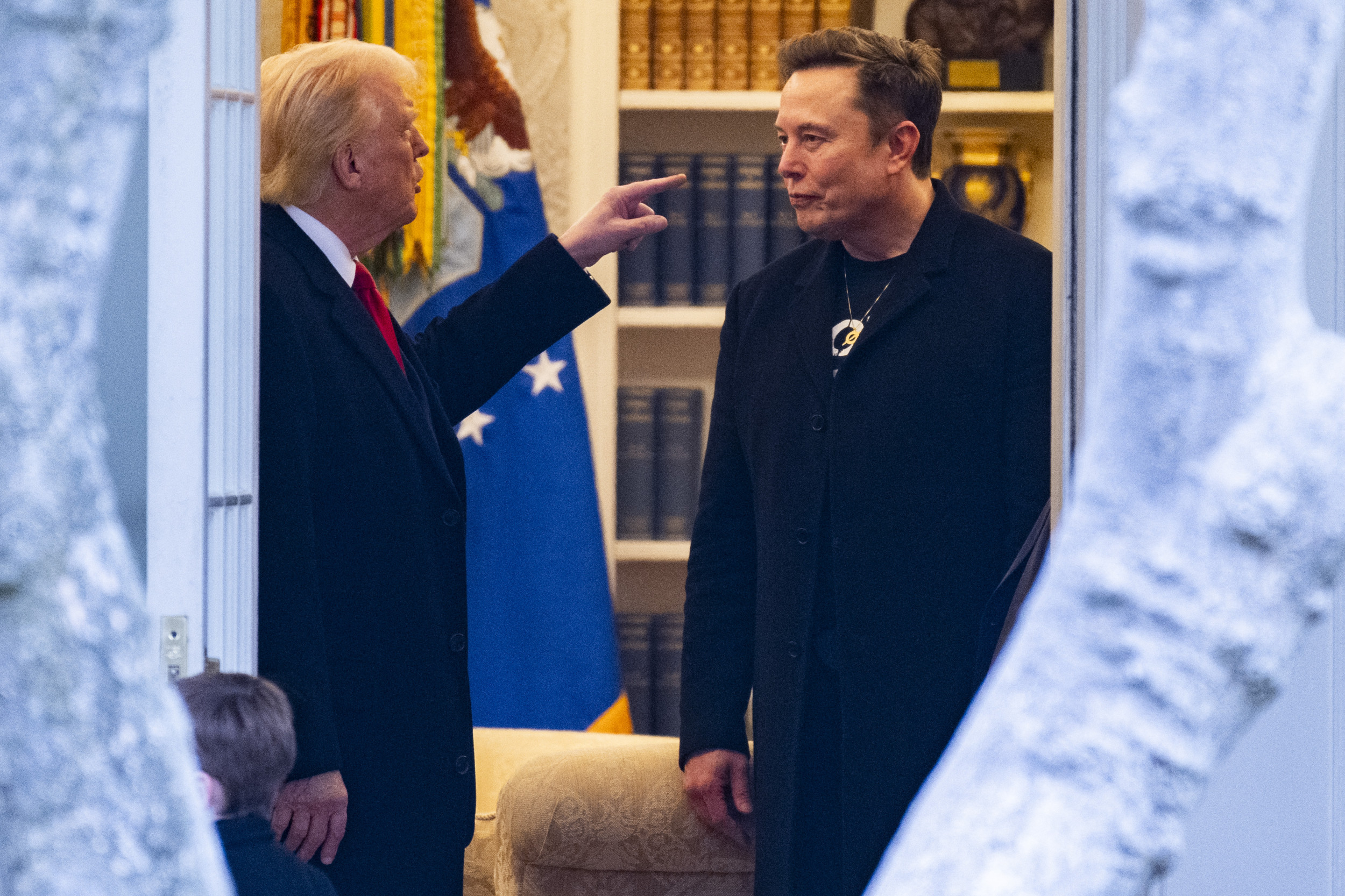A panel of three D.C. appeals court judges will hear arguments into whether a judge can block President Donald Trump from using the 1798 Alien Enemies Act to deport individuals believed to be part of a Venezuelan gang without due process.
Why It Matters
The Trump administration seeking to use the 1798 law to deport individuals with alleged connections to the Tren de Aragua gang is among those that have faced legal challenges.
Trump has argued he has the legal authority to order deportations under the law. Critics say its use without due process is leading to the deportation of migrants who do not have ties to the gang and that standard court procedure should be followed in these cases as the United States is not at war with Venezuela.
What To Know
The panel will hear arguments starting at 1:30 p.m. ET on Monday about whether to overturn Judge James Boasberg's ruling earlier in March blocking the use of the law for mass deportations.
The panel consisted of one Democratic-appointed judge and two Republican-appointed judges.
Judge Karen Henderson
Henderson has been on the appeals court for more than 30 years. She was first appointed by former President George H.W. Bush in 1990.
She has been involved in several cases involving Trump. In 2018, she rejected an attempt to obtain his tax records from the Internal Revenue Service. She wrote that a Freedom of Information Act request cannot be used "to obtain an unrelated individual's tax records without his consent."
In 2020, Henderson voted to end the prosecution of Michael Flynn, Trump's former national security adviser, who pleaded guilty to lying to federal authorities about his contacts with Russia. She also ordered the release of some redacted pieces of the Mueller report.
Prior to her tenure on the appeals court, she served on the U.S. District Court for the District of South Carolina from 1986 to 1990, having been appointed to the post by former President Ronald Reagan.

Judge Patricia Millett
Millett was appointed to the appeals court in 2013 by former President Barack Obama.
In 2021, she authored an opinion rejecting Trump's efforts to keep records from members of Congress probing the January 6, 2021, riot at the U.S. Capitol when a group of his supporters violently protested the 2020 presidential election results.
She wrote that January 6 "exposed the fragility of those democratic institutions and traditions that we had perhaps come to take for granted."
Prior to her appointment, Millett worked as a partner at Akin Gump Strauss Hauer & Feld LLP, where she led the Supreme Court and appellate practices.
Judge Justin Walker
Walker is the only judge on the panel appointed by Trump, who named him to the appeals court in 2020. Before Walker's appointment to the D.C. appeals court, Trump appointed him to the District Court for the Western District of Kentucky in 2019. Walker served on that court for just under a year before being confirmed to the appeals court.
In 2020, The New York Times described Walker as the "protégé" of Senator Mitch McConnell, a Kentucky Republican.
The Washington Post reported that Walker was the youngest nominee to the D.C. appeals court since 1983. In 2024, he dissented from the majority of a panel in a case into whether Trump ally Steve Bannon should have gone to prison while he fought his contempt of Congress conviction.
What People Are Saying
Lee Gelernt, deputy director of the ACLU's Immigrants' Rights Project and lead counsel, in a March 15 statement: "The Trump administration's intent to use a wartime authority for immigration enforcement is as unprecedented as it is lawless. It may be the administration's most extreme measure yet, and that is saying a lot."
The Department of Justice, in a March 15 filing requesting a stay in the case: "This Court should halt this massive, unauthorized imposition on the Executive's authority to remove people that Defendants had determined to be members of TdA, a group the President and the Secretary of State have found to be a threat to national security. This Court should halt this unprecedented intrusion upon the Executive's authority to remove dangerous aliens who pose grave threats to the American people."
What Happens Next
The three judges will hear arguments in the case starting at 1:30 p.m. on Monday, and a ruling is expected later.
fairness meter
About the writer
Andrew Stanton is a Newsweek weekend reporter based in Maine. His role is reporting on U.S. politics and social issues. ... Read more




